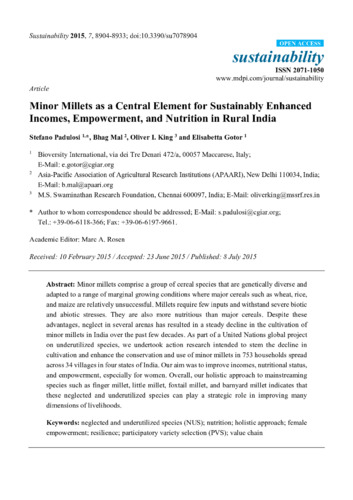Minor millets as a central element for sustainably enhanced incomes, empowerment, and nutrition in rural India
Minor millets comprise a group of cereal species that are genetically diverse and adapted to a range of marginal growing conditions where major cereals such as wheat, rice, and maize are relatively unsuccessful. Millets require few inputs and withstand severe biotic and abiotic stresses. They are also more nutritious than major cereals. Despite these advantages, neglect in several arenas has resulted in a steady decline in the cultivation of minor millets in India over the past few decades. As part of a United Nations global project on underutilized species, we undertook action research intended to stem the decline in cultivation and enhance the conservation and use of minor millets in 753 households spread across 34 villages in four states of India. Our aim was to improve incomes, nutritional status, and empowerment, especially for women. Overall, our holistic approach to mainstreaming species such as finger millet, little millet, foxtail millet, and barnyard millet indicates that these neglected and underutilized species can play a strategic role in improving many dimensions of livelihoods.

